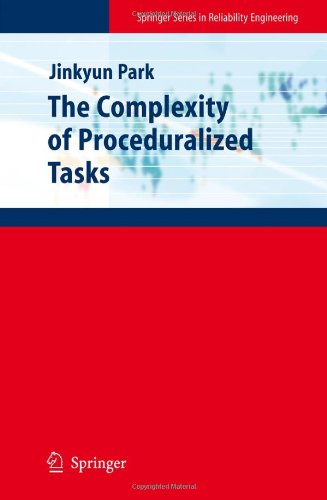

Most ebook files are in PDF format, so you can easily read them using various software such as Foxit Reader or directly on the Google Chrome browser.
Some ebook files are released by publishers in other formats such as .awz, .mobi, .epub, .fb2, etc. You may need to install specific software to read these formats on mobile/PC, such as Calibre.
Please read the tutorial at this link: https://ebookbell.com/faq
We offer FREE conversion to the popular formats you request; however, this may take some time. Therefore, right after payment, please email us, and we will try to provide the service as quickly as possible.
For some exceptional file formats or broken links (if any), please refrain from opening any disputes. Instead, email us first, and we will try to assist within a maximum of 6 hours.
EbookBell Team

4.3
48 reviewsProcedures are usually written as clearly as possible to make them easy for users to understand. Despite this, procedures are rarely able to provide precise instructions about every possible situation, so following a procedure can often be harder than it seems: it is not a simple task, but rather a cognitive activity that can prove quite demanding. The Complexity of Proceduralized Tasks deals with the problem of quantifying the complexity of a proceduralized task; in other words, a task written as a procedure.
Procedures should be written in a way that is easy to follow, and that makes them easy to understand. The greater the complexity of a task, the more difficult it is to perform; therefore, measuring the complexity of proceduralized tasks can be very beneficial in assessing their potential effectiveness. Accordingly, this book proposes a systematic framework that is able to quantify the complexity of proceduralized tasks. This approach is designed to complement existing methods that have focused mainly on making procedures easier to understand, rather than enhancing their overall performance.
The Complexity of Proceduralized Tasks will be a valuable resource for researchers and students who are interested in the provision of effective procedures for the purpose of enhancing the performance of human operators. It discusses a range of complexity factors, with chapters dedicated to such topics as software complexity, emergency tasks, and the TACOM measure.
Springer Series in Reliability Engineering publishes high-quality books in important areas of current theoretical research and development in reliability, and in areas that bridge the gap between theory and application in areas of interest to practitioners in industry, laboratories, business, and government.